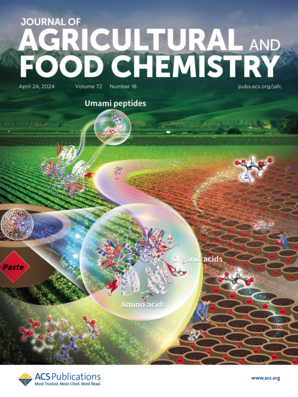Fabrication and Characterization of Gelatin-Finger Citron Polysaccharide Nanoparticles for Enhanced Solubility and Bioavailability of Luteolin in Treating Acute?…
Abstract
Luteolin (Lut) is a natural flavonoid that has been widely used in the treatment of liver and glycolipid metabolic diseases. However, poor water solubility and bioavailability limit its efficacy and application. To overcome these challenges, a protein–polysaccharide composite nanoparticle (L-GF NPs) for Lut delivery was prepared by a self-assembly method based on amphiphilic gelatin and active finger citron polysaccharide (FCP). The L-GF NPs were approximately spherical in shape and were formed by hydrogen bonding, electrostatic interaction, and hydrophobic interaction. Lut was encapsulated in the nanoparticles in an amorphous state, and the encapsulating efficiency was 79.49%. The efficacy of L-GF NPs was evaluated by intragastric administration of an alcoholic liver disease (ALD) mouse model. L-GF NPs have been demonstrated to significantly ameliorate the symptoms of ALD mice, which are mainly achieved by reducing lipid accumulation and oxidative stress and inhibiting the NF-κB pathway. In conclusion, the aqueous solubility and bioavailability of Lut were markedly enhanced by FCP encapsulation. Meanwhile, the combined effect of Lut and FCP significantly ameliorated ALD and attenuated alcohol-induced lipid metabolic disorders and oxidative damage. This provides a new strategy to promote the prevention and treatment of ALD.





